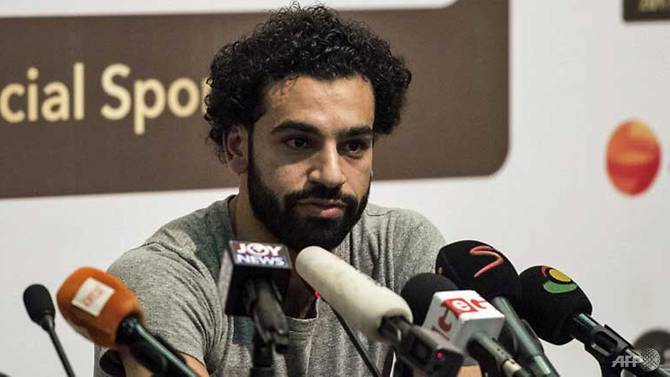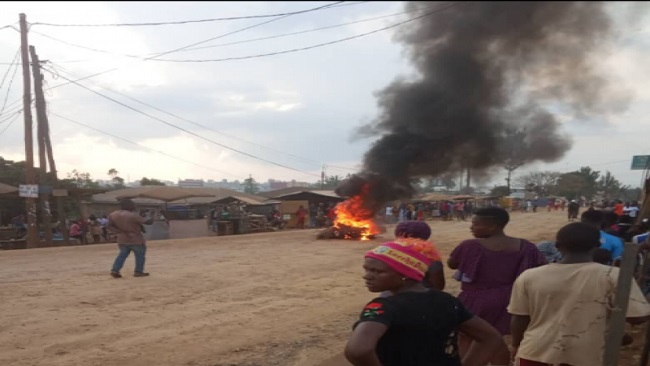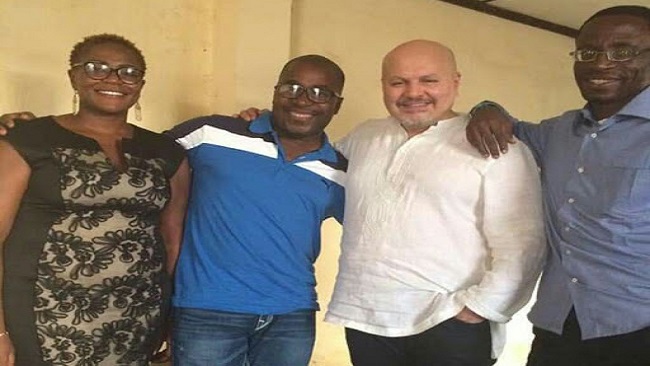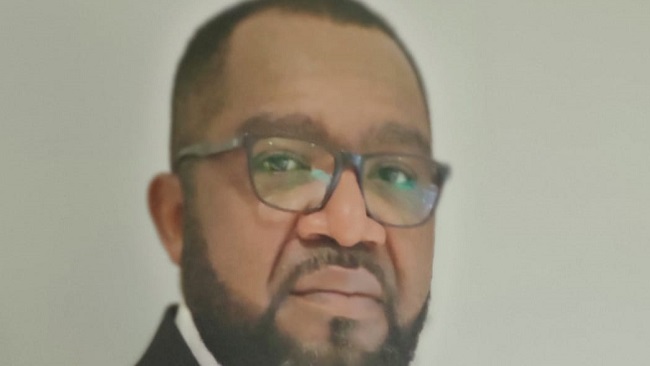15, February 2021
Macron meets G5 Sahel leaders amid questions over France’s strategy 0
Leaders of France and five Sahel countries on Monday begin a two-day summit to discuss the G5-Sahel grouping’s anti-insurgency operations amid mounting local dissatisfaction over the military-heavy approach that has failed to stabilise the poorly administered region.
Leaders of the so-called G5 Sahel – Burkina Faso, Chad, Mali, Mauritania and Niger – are attending the two-day summit in the Chadian capital N’Djamena, with French President Emmanuel Macron joining via videolink.
The meeting comes a year after France boosted its Sahel deployment, seeking to wrench back momentum in the brutal, long-running battle.
But despite touted military successes, jihadists remain in control of vast swathes of territory and attacks are unrelenting.
Six UN peacekeepers have been killed in Mali this year alone, and France has lost five soldiers since December.
Islamist fighters in the Sahel first emerged in northern Mali in 2012, during a rebellion by ethnic Touareg separatists which was later overtaken by the jihadists.
France intervened to rout the insurgents, but the jihadists scattered, taking their campaign into the ethnic powder keg of central Mali and then into Burkina Faso and Niger.
Thousands of soldiers and civilians have been killed, according to the UN, while more than two million people have fled their homes.
Calls for a course correction strategy
The crushing toll has fuelled perceptions that the jihadists cannot be defeated by military means alone.
At a summit in the French city of Pau last year, G5 Sahel leaders agreed to step up military cooperation to tackle the threat. “We have no choice. We need results,” said Macron at the end of the January 2020 summit.
But some experts believe there is a choice between focusing on a solely military strategy or viewing it as a component of a strategy that includes governance, political representation, fiscal reforms, anti-corruption as well as human rights issues.
In a report published February 1, the Brussels-based International Crisis Group (ICG) called on G5 Sahel leaders to “reorient their approach to one rooted in efforts to prioritise governance, notably by soothing the escalating tensions among communities and between communities and the state in rural areas, which jihadists exploit, and by improving governments’ delivery of basic services to citizens”.
Jean-Herve Jezequel, the ICG’s Sahel director, said conventional military engagement had failed to deliver a knockout blow.
The jihadists “are capable of turning their backs, bypassing the system, and continuing,” he said.
Last Tuesday, French Foreign Minister Jean-Yves Le Drian called for a “diplomatic, political and development surge” to respond to the situation.
Last year, France upped its Barkhane mission in the Sahel from 4,500 troops to 5,100 – a move that precipitated a string of apparent military successes.
French forces killed the leader of the notorious Al-Qaeda in the Islamic Maghreb (AQIM), Abdelmalek Droukdel, as well as a military chief of the Al-Qaeda-affiliated Group to Support Islam and Muslims (GSIM).
Troop drawdown?
But the latest attacks have also brought the number of French combat deaths in Mali to 50, prompting soul-searching at home about Barkhane’s cost and usefulness.
Macron last month opened the door to a drawdown, suggesting France may “adjust” its military commitment.
Despite persistent rumours, France is not expected to announce any troop withdrawal at N’Djamena.
Instead, to lighten the load, France is hoping for more military support from its European partners through the Takuba Task Force which assists Mali in its fight against jihadists.
The Sahel armies, for their part, are unable to pick up the slack.
In 2017, the five countries initiated a planned 5,000-man pooled force, but it remains hobbled by lack of funds, poor equipment and inadequate training.
Chad, which reputedly has the best armed forces among the five, promised a year ago to send a battalion to the “three border” flashpoint where the frontiers of Mali, Niger and Burkina converge. The deployment has still not happened.
Paris also hopes last year’s successes can strengthen political reform in the Sahel states, where weak governance has fuelled frustration and instability.
In Mali, the epicentre of the Sahel crisis, army officers overthrew president Ibrahim Boubacar Keita last August after weeks of protests over perceived corruption and his failure to end the jihadist conflict.
The interim government has pledged to reform the constitution and stage national elections, but critics say the pace of change is slow.
A 2015 regional deal between Mali’s government and northern rebel groups has also barely advanced, yet it is one of the country’s few options for escaping the violence.
(FRANCE 24 with AFP)



























15, February 2021
First woman, first African: Nigeria’s Okonjo-Iweala set to be named WTO boss 0
Nigeria’s Ngozi Okonjo-Iweala looks set to be confirmed Monday as the first woman and first African leader of the beleaguered World Trade Organization, a near-paralysed institution desperately needing a kick-start.
The WTO has called a special general council meeting at which the former Nigerian finance minister and World Bank veteran is expected to be formally selected as the global trade body’s new director-general.
US President Joe Biden strongly swung behind her candidacy shortly after the only other remaining contender, South Korean Trade Minister Yoo Myung-hee, pulled out.
“I look forward to finalising the process,” Okonjo-Iweala said on February 6 after securing the Biden administration’s support.
The organisation is also eager to conclude the drawn-out process, having been leaderless since Brazilian career diplomat Roberto Azevedo stepped down last August, a year ahead of schedule.
The process of picking one of eight candidates to succeed him had been expected to wrap up by November, but the administration of former US president Donald Trump blocked the consensus to appoint Okonjo-Iweala.
‘Reform candidate’
The 66-year-old will not be at the WTO’s Geneva headquarters for Monday’s virtual session and it is not known when she would take up her duties.
The 164-member organisation’s special session gets under way at 1400 GMT and Okonjo-Iweala is scheduled to hold an online press conference two hours later.
The WTO picks its leaders through consensus-finding, so even though she is the only candidate still in the race — boasting US, EU and African backing — there is always the chance of a spanner being thrown in the works.
She will take over an organisation mired in multiple crises and struggling to help member states navigate the severe global economic slump triggered by the coronavirus pandemic.
Okonjo-Iweala argued during the race that she was best placed out of the eight candidates for the post to steer the WTO through the crises.
“I am a reform candidate,” she insisted.
She has among other things warned that growing protectionism and nationalism have been spurred on by the pandemic and insists barriers need to be lowered to help the world recover.
Even before Covid-19 battered the global economy, the WTO was weighed down by stalled trade talks and struggled to curb trade tensions between the United States and China.
The WTO also faced relentless attacks from Washington under Biden’s predecessor Donald Trump. Among other things, Trump brought the WTO’s dispute settlement appeal system to a grinding halt in late 2019.
‘Boldness, courage’
Okonjo-Iweala has said her priorities include getting long-blocked trade talks on fishery subsidies across the finish line and breathing life back into WTO’s Appellate Body.
Twice Nigeria’s finance minister (2003-2006 and 2011-2015) and its first female foreign minister in a two-month stint in 2006, Okonjo-Iweala is seen as a trailblazer in her west African homeland.
She has brushed off claims she lacks experience as a trade minister or negotiator, insisting that what is needed to lead the WTO is not technical skills but “boldness, courage”.
She has portrayed herself as a champion against Nigeria’s rampant corruption — saying her own mother was even kidnapped over her attempts to tackle the scourge.
But her critics argue she should have done more to tackle it while in power.
A development economist by training with degrees from the Massachusetts Institute of Technology and Harvard, Okonjo-Iweala has also had a 25-year career as a development economist at the World Bank, eventually becoming its number two.
She is on the Twitter board of directors and chaired Gavi, the Vaccine Alliance.
(AFP)